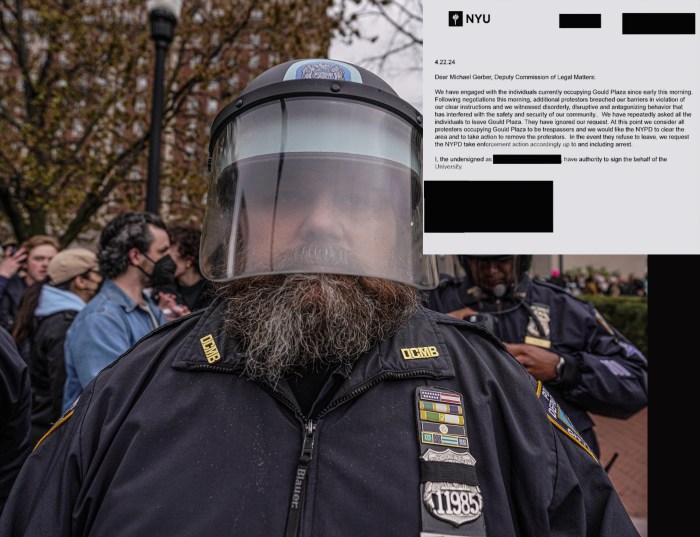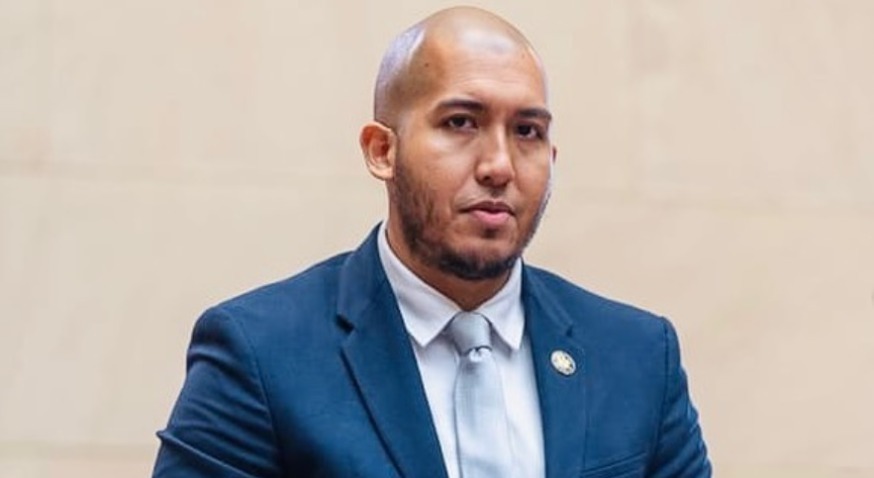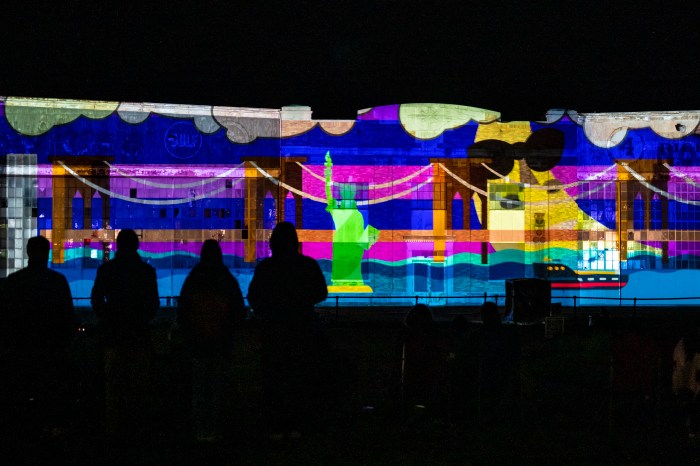
Sen. Charles Schumer Monday proposed increasing the penalty for people caught trespassing on monuments and critical infrastructure in the city and throughout the U.S. following a rash of incidents over the summer, including on the Brooklyn Bridge and One World Trade Center.
The increased penalty, he hopes, would both dissuade people from breaching security and make it easier to extradite those from abroad who do.
The bill would increase the penalty for trespassing with the intent to commit a crime to a maximum of five years in prison. Currently, the city’s trespassing law has a maximum of one year in prison.
“In these particular cases no harm was done, but they open our eyes to a whole host of real threats caused by trespassing on buildings like this,” Schumer said. “The legislation will make loud and clear to trespassers from overseas and other potential wrongdoers that we cannot turn New York City’s infrastructure into playgrounds or worse.”
In July, the American flags atop the Brooklyn Bridge’s towers were replaced with white flags and a pair of German artists claimed responsibility for the stunt. A month later a Russian tourist was charged with scaling the bridge to take photos. And in March a New Jersey teenager climbed to the top of the World Trade Center.
While Schumer said he does not yet have House sponsors on the bill, he has the support of the NYPD. Indeed, John Miller, the department’s deputy commissioner for intelligence and counterterrorism, called the bill “an important step” in distinguishing between those who are reckless and those who pose a threat.
“Those are going to be very important distinctions when you have a case where it may be more than a prank, it may be pre-operational surveillance for an act of terrorism or something else,” Miller said. “We welcome this bill and we look forward to its passage.”
Schumer, who hopes to bring to the bill to a vote by the end of March, said the simple act of climbing these structures puts people at risk, such as first responders who have to get the person down.
But Michael Cahill, vice dean and professor of law at Brooklyn Law School, said the bill isn’t likely to dissuade actual terrorists. In fact, it seems to have the potential to punish where there is no risk of actual harm, he said.
“It might be likely to pass but that doesn’t necessarily mean it’s a good idea,” Cahill said. “Terrorists are not going to be deterred by increasing a penalty from one to five years.”
Cahill said the increase in prison time simply isn’t significant. Those who want to climb bridges or jump off buildings weigh the likelihood of getting caught, not the penalty.
“The fact is this was an embarrassment to the authorities. It’s just something that exposes vulnerability,” he said. “It’s not clear to me that increasing the punishment is going to deter the behavior.”
The law, Schumer said, would make prosecuting foreigners, like the German artists, much simpler.
“It’s a lot easier to extradite someone if there’s a felony, and a federal felony, than if there’d be a local misdemeanor,” Schumer said. “It would help.”
Schumer said the law would apply to all critical infrastructure throughout the country, listed under the Patriot Act.

















